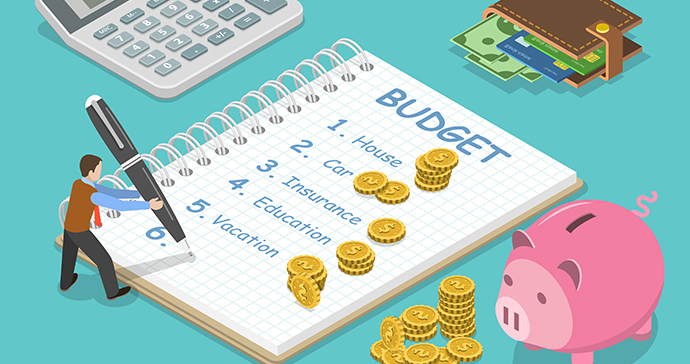 Be it the bread-earners of the family, the think-tankers of the businesses, or the policymakers of the governments, everybody in the world is currently clouded by the thoughts of survival and financial sustainability.
Be it the bread-earners of the family, the think-tankers of the businesses, or the policymakers of the governments, everybody in the world is currently clouded by the thoughts of survival and financial sustainability.
Today, the financial crunch can be felt by each and every living person in the world and is bringing to light the need of budgeting i.e. how to manage expenses with the limited income that we have today!
The post-COVID-19 period will surely bring with it, a recession and slump in the overall market, leading people into a fight against another crisis, if I dare say, a financial pandemic. Yes, it can be felt already considering the layoffs or business shutdown that we are seeing today. However, the good news is that if we take precautionary measures now; we might be able to sustain it to some extent. Thus, I decided to talk about 3 things that we should be considering to prepare ourselves for the financial crisis that waits for us down the road.
What is Budgeting
Recently, before the coronavirus spread, I was speaking to a young man (35 years old), who was working for an MNC in Noida. While we were discussing planning his finances, he said, “Ashish I know from where my money comes in, but I don’t know where my money is going out. ” To which I responded, you know what it’s a typical case of total budgeting failure, and may lead to mismanagement of finances. And before we delve into how much you should save for your financial goals, let’s understand what budgeting is-:
Budgeting is a process of creating a plan to spend your income wisely. Budgeting is nothing but balancing and tracking your expenses to ensure you are not overspending.
What You Earn Today Must Pay for Your Needs of Today and Tomorrow
Now that we know what budgeting is, there’s one thing we often forget – The money that we earn today is not just meant to pay for today’s expenses but also to provide for tomorrow’s expenses. Be it salary or profits, first take out the money for all your needs. When I say needs, it is not only for immediate but for the future needs also. If you spend all your income today, there’ll be none left for the growing needs of tomorrow like retirement, children’s higher education, contingency funds, etc.
There’s No Thrill in Living at the Pay-Check Edge
If you are amongst the 40% people who are meeting ends and living on pay-check to pay-check, coronavirus has come as the harshest reality check.
If you are tensed about catering to your essential needs for the 21 days of lockdown, have you ever thought about how you will be able to survive your 21+ years of retirement? While optimism and being positive is a good trait, thinking that you’ll survive it when the time would come, is sheer arrogance.
Moving forward as the world contains this pandemic, it is necessary for people to reconsider their spending habits. The implication here is not to live poorly or in misery, but a lesson of living frugally must be learned, now more than ever, and avoid the strain of personal debts and EMIs in the times to come.
Here on – Take budgeting seriously or there’ll be serious consequences
During this lockdown, a message is going viral, “Jeevan yaapan ke kharche toh behad kum hai, sirf lifestyle aur dikhawa hi kharchila hai,” meaning, the cost of living is indeed low, it’s the lifestyle and pretence that is expensive.
In the period of lockdown, did it occur to you that – you are constantly trapped by the unlimited wants of the material world, trying to set an unrealistic example of your life? The quest to look better in front of relatives, peers and people, in general, have led to even the richest feel insecure with all that they have. As rightly said by Mahatma Gandhiji “The world has enough for everyone’s need but not everyone’s greed.” While you can indulge in luxuries and wants, you must not place them above your current and future needs.
Summing it up: Stop Wishing and Start Budgeting today
Taking the first step is the hardest things to do. But as they say, the journey of a thousand miles starts with a single step. What better time would you get than this to rethink your financial planning and expenses. Take one step a time, do it not just today but consistently, every day.
- List down your expenses
- Categorise them into discretionary & non-discretionary expenses
- Eliminate or reduce discretionary expenses
- And follow the plan consistently.